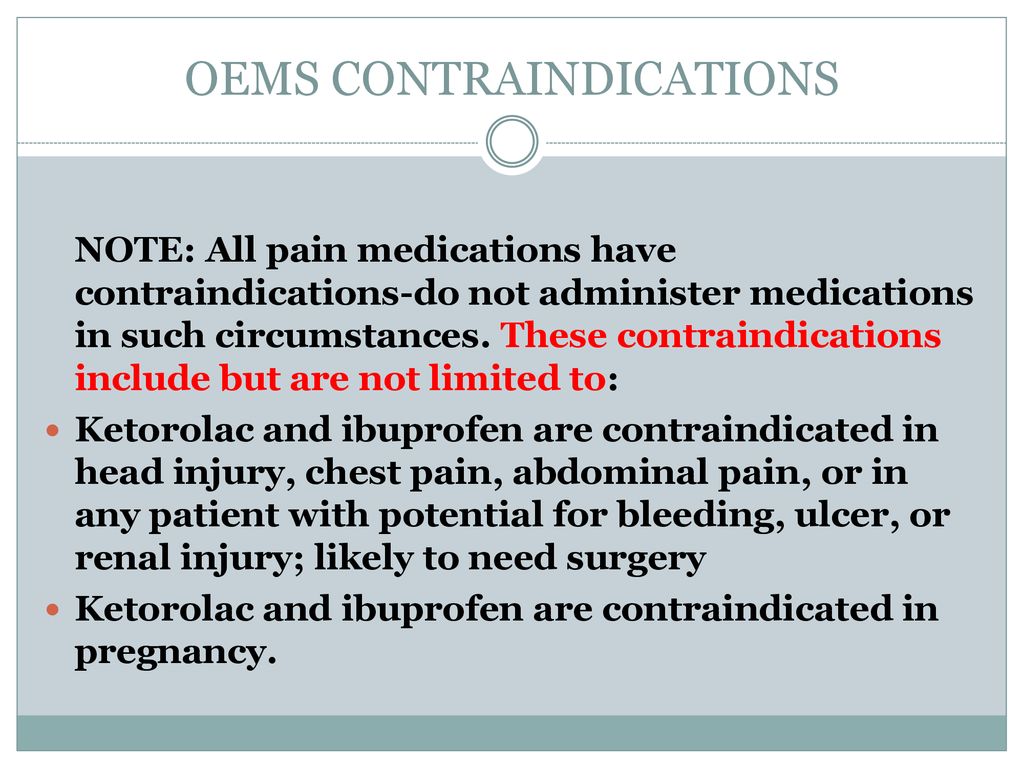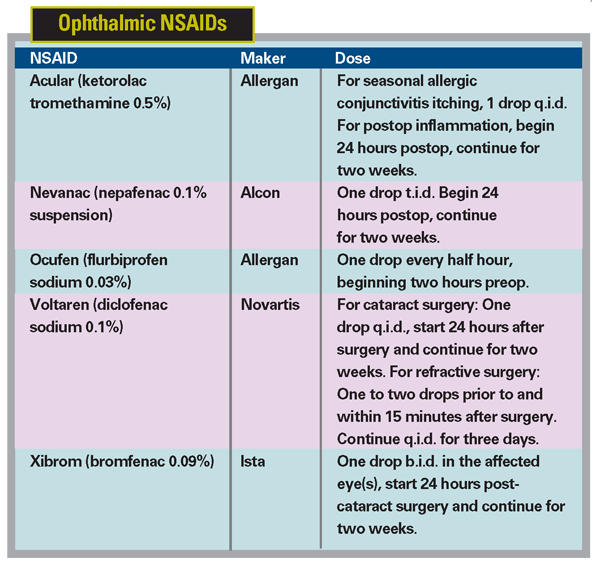All NSAIDs can alter renal function by inhibiting COX-1 which regulates renal hemodynamics and glomerular filtration andor COX-2 which mediates salt and water excretion expressed in the kidneys38 Uncommon but concerning renal syndromes caused by nonselective NSAIDs include sodium retention peripheral edema increased BP and weight congestive. 9A nurse should recognize clients that have contraindications to the use of NSAIDs.

Nsaids Section 4 The Essence Of Analgesia And Analgesics
With NSAID hypersensitivity or salicylate hypersensitivity as well as in patients who have experienced an allergic reaction urticaria asthma etc after taking NSAIDs.

. These are common to all NSAIDs and include the following. Ibuprofen and all other NSAIDs are metabolized in the liver and can pose risks for individuals with hepatic problems 7. NSAIDs including ibuprofen tablets can cause serious gastrointestinal GI adverse events including inflammation bleeding ulceration and perforation of the stomach small intestine or large intestine which can be fatal.
The following list is an example of NSAIDs available. Which of the following should NOT be prescribed for a patient receiving warfarin Coumadin. This warning is for all NSAIDs including aspirin.
Indications Urgent Meningitis 1 It is very difficult to clinically rule out meningitis with out an LP. A A female client who is lactating. Contraindications and Precautions Updates Major changes to the best practice guidance in this section include 1 enhancement of the definition of a precaution to include any condition that might confuse diagnostic accuracy and 2 recommendation to.
For this the safest way to take non-steroidal anti-inflammatory drugs NSAIDs is to follow the administration instructions indicated by a medical specialist. What are the contraindications for the use of NSAIDs. Select all that apply.
Patient education regarding the use of NSAIDS includes all of the following except. In which of the following clients would the use of an NSAID be contraindicated. This risk may be greater in people who.
NSAID-related renal adverse events may be dependent on dose and duration of therapy and can include reduced glomerular filtration nephritic syndrome and chronic renal failure 6. History of GI bleeding or perforation related to NSAID use History of asthma or allergy after taking NSAIDs or aspirin Stomach or duodenal ulcers Severe liver damage Severe heart or kidney failure. Older persons persons.
Only 2 effective ways to rule out meningitis Jolt Acceleration Sensitivity 97 Specificity 60 Patient turns their head horizontally 2 rotations a second for several seconds. Prolonged bleeding after injury or surgery. B A female client with a hypersensitivity to aspirin.
41 rows Nonsteroidal anti-inflammatory drugs NSAIDs are commonly used but have risks associated with their use including significant upper gastrointestinal tract bleeding. Aspirin is an exception. These side effects can occur without warning signs.
Fever neck stiffness altered mental status and headache are the most common symptoms. Cardiovascular NSAIDs are depending on the NSAID in question linked to an increased risk of myocardial infarction stroke and other thromboembolic effects. Metabolism is decreased by a reduced liver mass.
Contraindications and Precautions 51 4. Potential adverse effects associated with aspirin include all of the following except a Gastrointestinal ulceration b Renal dysfunction c Enhanced methotrexate toxicity d Cardiac arrhythmias e Hypersensitivity asthma 51. For patients who have renal abnormalities using aspirin or other NSAIDs may lead to chronic kidney disease.
A pharmacy technician should identify that which of the following medications is contraindicated for administration to a patient who is allergic to penicillin Pen-VK. Non-aspirin NSAIDs should not be used right before or after heart bypass surgery. LIVER DISEASE OR LIVER CIRRHOSIS.
What NSAIDs are approved in the United States. NSAIDs are contraindicated in all of the following conditions EXCEPT. For example ibuprofen has the lowest risk whereas celecoxib is associated with a much higher risk.
Which of the following pharmacokinetic changes occurs with aging. All of the following facts are true about nonsteroidal antiinflammatory drugs NSAIDs except a They are antipyretic. General Best Practice Guidelines for Immunization.
Serious side effects include. Absorption is altered by a decrease in the gastric pH. According to the package insert NSAIDs are contraindicated in patients.
Do not lie down for 30 min after dosage. NSAIDs may increase the chance of serious stomach and bowel side effects like ulcers and bleeding. Similarly the kidney may be especially susceptible to adverse effects of NSAIDs.
A Doxycycline Vibramycin b Amoxicillinclavulanate Augmentin c Tetracycline Sumycin d Sulfamethoxazoletrimethoprim Bactrim. 6 Adverse renal events from NSAIDs may be dependent on dose and therapy duration and can include nephritic syndrome reduced glomerular filtration and chronic renal failure 7. Heart attack stroke high blood pressure heart failure from body swelling fluid retention kidney problems including kidney failure.
These serious adverse events can occur at any time with or without warning symptoms in patients treated with NSAIDs. NSAIDs have a few contraindications. Thus according to the American College of Rheumatology all non-steroidal anti-inflammatory drugs NSAIDs include the following health risks.
NSAIDs can cause fluid retention which can lead to edema which is most commonly manifested by swelling of the ankles. Salicylates are contraindicated for all of the following conditions except. In diseases such as peptic ulcers diabetes hypertension congestive heart failure liver disease with ascites and renal insufficiency PGs seem to play a protective role in the kidney.

Nsaids Contraindications Nursing Pharmacology Mnemonics Nursing School Tips Nursing School Pharmacology


0 Comments